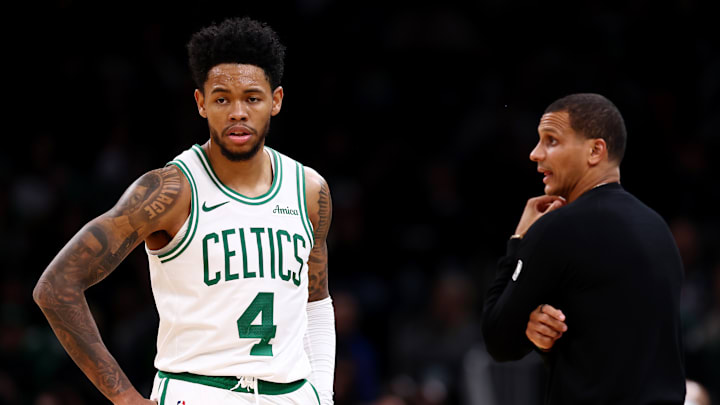The Portland Trail Blazers moved on from Anfernee Simons this summer, trading him to the Boston Celtics in exchange for Jrue Holiday. Early on, it appears that Portland received the better end of that deal, as Simons has struggled to find his footing in Boston.
Simons is averaging just 13.9 points, 2.3 rebounds, and 1.5 assists on 41/38/83 shooting splits through eight games with the Celtics. Heading into the season, he was considered a Sixth Man of the Year candidate, which would have made it back-to-back Celtics after (Oregonian) Payton Pritchard took home the award last year. Simons is playing himself out of the running, averaging his lowest point total since the 2020-21 season.
More concerning than the lack of scoring punch is the decrease in assists. Simons is a defensive liability and must compensate by providing value on the offensive end with his combo guard skill set. Without his playmaking, it's fair to wonder how impactful he truly is in Boston.
Blazers were right to move on from the Anfernee Simons dilemma
At first glance, Simons should fit the Celtics under Joe Mazzulla's three-point-heavy offense. However, what some overlook about Mazzulla-ball is that it actually starts on the defensive end. That shouldn't come as a surprise, considering the type of player he was at West Virginia.
Offensively, the Celtics implement a "Killer Whale" approach. "We attack seals because killer whales, how they hunt seals," Jaylen Brown explained on an episode of "Hot Ones." "We study how killer whales attack as a unit. And we kinda built our offense off [that]."
This can also apply to how the Celtics approach their defensive strategy. They know the value of hunting mismatches on offense, which means they also don't want to give opposing teams the same advantage defensively. Simons, by all accounts, is one of those "seals." He's consistently been one of the Blazers' worst defenders all seven seasons he spent in Portland.
So while his shooting is an excellent fit under Mazzulla, that's only one part of the recipe that makes the Celtics' style of play so successful. Boston realizes that Simons isn't a complete fit, which is why they were so quick to shop for him after acquiring him from Portland. His imperfect fit and expiring contract give the Celtics a sense of urgency to trade him by February's trade deadline, especially considering how expendable he is in their crowded backcourt.
The issue, however, is that other teams also realize that Simons's lack of two-way impact may not justify his next contract, making it difficult for the Celtics to get any significant assets in return. It's the exact same dilemma the Blazers would've been faced with had they not traded Simons this summer, meaning Portland was wise to get anything of value while they still could.
